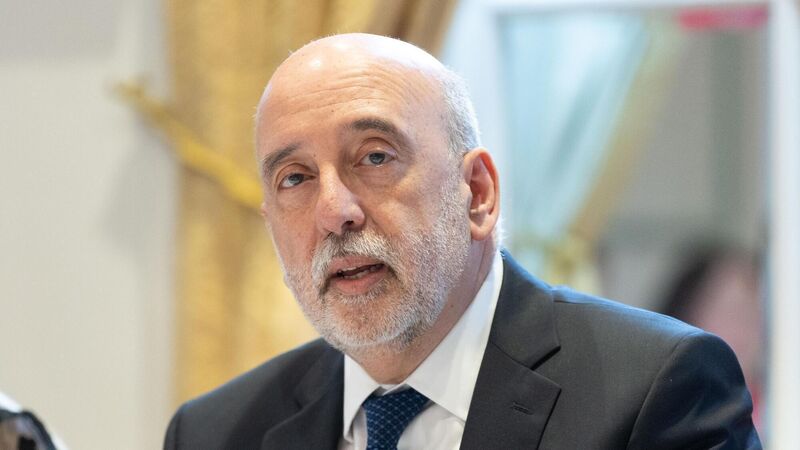High services inflation means 'gradual' rate cuts still needed, says Gabriel Makhlouf

Governor of the Central Bank of Ireland, Gabriel Makhlouf, said some components of inflation are “still too high for comfort” notably services inflation. File photo
Governor of the Central Bank of Ireland, Gabriel Makhlouf, has said he remains in favour of a more gradual reduction in interest rates, rather than larger moves, as inflation in areas such as services and food continues to remain high.
On Thursday, the European Central Bank (ECB) announced a further cut to interest rates of 0.25% amid growing concerns that the economic recovery across the eurozone is losing momentum. ECB president Christine Lagarde said that a 0.5% rate cut was considered but they ultimately decided against it.














